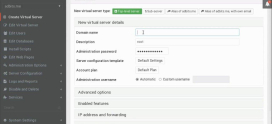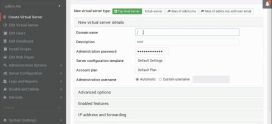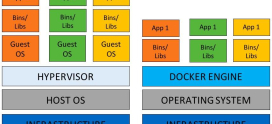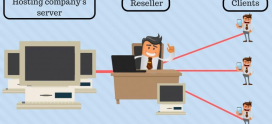
Step-by-Step Guide to Setting Up Dovecot for IMAP/POP3 in cPanel
Setting up email services can often feel like navigating a labyrinth. If you’ve ever struggled with IMAP and POP3 settings, you know what I mean. All those acronyms, server names, and configuration options can be more than a little confusing. You’re not alone in feeling puzzled by this process. Many people find themselves facing a similar challenge when they want to set up Dovecot for IMAP/POP3 on their cPanel servers.
Don’t worry! This guide is here to walk you through every step. Whether you’re a small business owner wanting to manage your emails effectively or just someone looking to get a handle on your personal email, setting up Dovecot correctly can make all the difference. Think of Dovecot like a reliable postman, ensuring your emails get delivered where they need to go—securely and efficiently.
In the next sections, we’ll simplify the process and address common pitfalls. You’ll discover practical tips, expert insights, and even some real-world applications of how others have set up Dovecot with success. Ready to conquer this challenge together? Let’s dive in!
What is Dovecot?
Dovecot is an open-source IMAP and POP3 server. Its job is to deliver email messages and manage mailboxes for users. Think of it as the backbone that supports your email system, connecting you with your messages in a safe and organized way. Here are a few key features of Dovecot:
- High performance: Dovecot is designed to handle large amounts of traffic smoothly.
- Security: It offers robust security features, including SSL/TLS encryption.
- Easy to use: It comes with a straightforward installation process.
Why Use Dovecot with cPanel?
cPanel is a popular web hosting control panel that simplifies managing web hosting tasks, including email management. By integrating Dovecot with cPanel, you gain several advantages:
- Manage multiple email accounts efficiently.
- Easily configure email settings through a user-friendly interface.
- Access to customer support from your hosting provider, such as DarazHost.
Step 1: Prepare Your Server
Before diving into the installation process, ensure your server is ready. Here are prerequisites you should check:
- Log in to your server via SSH as the root user.
- Ensure that you have the latest cPanel version installed.
- Verify that your server’s firewall is configured to allow ports 143 (IMAP) and 110 (POP3).
Step 2: Install Dovecot
Now we’re getting to the fun part—installing Dovecot! With cPanel, this process is relatively straightforward. Here’s how to do it:
- Access the cPanel interface.
- Navigate to the “Software” section and locate “EasyApache.”
- Select the version of Dovecot to install.
- Click the “Build” button to start the installation.
Step 3: Configure Dovecot
Once Dovecot is installed, it’s time to configure it to suit your needs. Configuration is crucial for optimizing performance. Follow these steps:
- Open the Dovecot configuration file, usually located at
/etc/dovecot/dovecot.conf. - Specify the protocols you want to support (IMAP, POP3, etc.). For instance, include:
protocols = imap pop3- Configure mail location. A common setting is:
mail_location = maildir:~/Maildir
Step 4: Enable SSL/TLS Encryption
Security should be a top priority for any email service. Enabling SSL/TLS encryption helps protect your data during transmission. Here’s how to enable it:
- In your Dovecot configuration file, locate or add this line:
ssl = required- Specify the paths to your SSL certificate and key:
ssl_cert =andssl_key =
Step 5: Set Up the Firewall
To allow connections to your Dovecot server, adjust your firewall settings:
- Use commands like
iptablesto allow traffic through the IMAP and POP3 ports (143 and 110). - Don’t forget to save your firewall configuration changes.
Step 6: Test Your Setup
Before you start using Dovecot for your email needs, it’s essential to test your configuration. Try sending and receiving emails through your client of choice:
- Configure an email client like Thunderbird with your Dovecot server settings.
- Send a test email to verify everything is working correctly.
Common Issues and Troubleshooting
Even after following all the steps, issues may arise. Knowing potential problems helps you address them swiftly:
- Connection refused: Check if Dovecot is running and that the firewall is configured correctly.
- Authentication failure: Ensure that the username and password are correct.
- Emails not loading: Review the logs located at
/var/log/maillogfor errors.
Case Study: Real-World Application of Dovecot
Consider the case of Jane, a small business owner. After implementing Dovecot with cPanel, she noticed a significant improvement in how her team managed emails. They could now access emails faster, and the added security gave her peace of mind. Jane also highlighted that customer support from DarazHost was invaluable when she needed help.
FAQs
What is the difference between IMAP and POP3?
IMAP allows you to access your emails from multiple devices, keeping everything synced. POP3, on the other hand, downloads your emails to a single device, which means they may not be available elsewhere.
Can I set up Dovecot without a hosting provider?
While it’s possible to set up Dovecot on your own server, having a hosting provider like DarazHost simplifies the process and provides ongoing support.
Is Dovecot secure?
Yes, when configured properly with SSL/TLS, Dovecot provides robust security for email transmission.
How can I check if Dovecot is running?
You can use the command systemctl status dovecot to check if Dovecot is active and running on your server.
Do I need to back up my email data?
Absolutely! Regularly backing up your email data is crucial to prevent data loss. Consider automated solutions or manual backups regularly.
Conclusion
Setting up Dovecot for IMAP/POP3 with cPanel can seem daunting, but with the right guidance, it’s entirely manageable. Remember, you’re not alone in this journey. With valuable insights And practical steps outlined in this guide, you can navigate the process successfully. Whether for personal use or business needs, Dovecot can enhance your email management significantly.
As you embark on this journey, keep the importance of security in mind, and don’t hesitate to reach out to your hosting provider for assistance if needed. Most importantly, ensure you test your setup thoroughly to confirm everything is functioning correctly before fully transitioning your email operations.
With Dovecot in place, you’ll have a reliable, secure, and efficient solution for handling your email needs. Embrace the process and enjoy the benefits that come with better email management! Happy emailing!









